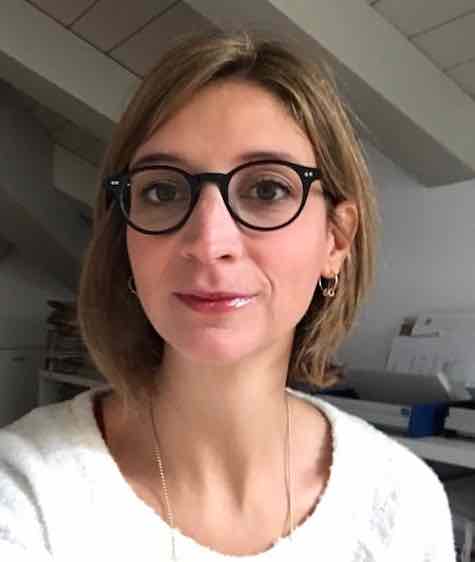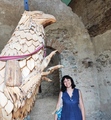Studying at the University of Verona
Here you can find information on the organisational aspects of the Programme, lecture timetables, learning activities and useful contact details for your time at the University, from enrolment to graduation.
Academic calendar
The academic calendar shows the deadlines and scheduled events that are relevant to students, teaching and technical-administrative staff of the University. Public holidays and University closures are also indicated. The academic year normally begins on 1 October each year and ends on 30 September of the following year.
Course calendar
The Academic Calendar sets out the degree programme lecture and exam timetables, as well as the relevant university closure dates..
| Period | From | To |
|---|---|---|
| FULL YEAR | Oct 2, 2017 | Jun 9, 2018 |
| Semester 1 | Oct 2, 2017 | Jan 20, 2018 |
| Semester 2 | Feb 26, 2018 | Jun 9, 2018 |
| Session | From | To |
|---|---|---|
| Winter session | Jan 22, 2018 | Feb 24, 2018 |
| Summer session | Jun 11, 2018 | Jul 28, 2018 |
| Autumn session | Aug 27, 2018 | Sep 22, 2018 |
| Session | From | To |
|---|---|---|
| LAUREE LINGUE - sessione autunnale a.a. 2016/2017 | Dec 18, 2017 | Dec 21, 2017 |
| LAUREE LINGUE - sessione invernale a.a. 2016/2017 | Mar 23, 2018 | Mar 29, 2018 |
| LAUREE LINGUE - sessione estiva | Jul 16, 2018 | Jul 21, 2018 |
| LAUREE LINGUE - sessione autunnale | Nov 12, 2018 | Nov 17, 2018 |
| LAUREE LINGUE - sessione invernale | Apr 12, 2019 | Apr 18, 2019 |
| Period | From | To |
|---|---|---|
| Immaculate Conception | Dec 8, 2017 | Dec 8, 2017 |
| Christmas break | Dec 22, 2017 | Jan 7, 2018 |
| Easter break | Mar 30, 2018 | Apr 3, 2018 |
| Liberation Day | Apr 25, 2018 | Apr 25, 2018 |
| Labour Day | May 1, 2018 | May 1, 2018 |
| Patron Saint Day | May 21, 2018 | May 21, 2018 |
| Republic Day | Jun 2, 2018 | Jun 2, 2018 |
| Summer break | Aug 13, 2018 | Aug 18, 2018 |
| Description | Period | From | To |
|---|---|---|---|
| ANNUALE | ANNUALE | Oct 2, 2017 | Jun 9, 2018 |
Exam calendar
Exam dates and rounds are managed by the relevant Foreign Languages and Literatures Teaching and Student Services Unit.
To view all the exam sessions available, please use the Exam dashboard on ESSE3.
If you forgot your login details or have problems logging in, please contact the relevant IT HelpDesk, or check the login details recovery web page.
Should you have any doubts or questions, please check the Enrollment FAQs
Academic staff
 valentina.adami@univr.it
valentina.adami@univr.it
 paola.bellomi@univr.it
paola.bellomi@univr.it
 daniele.beltrame@univr.it
daniele.beltrame@univr.it
 paolamaria.caleffi@univr.it
paolamaria.caleffi@univr.it
 riccardo.cella@univr.it
riccardo.cella@univr.it
 elisa.dallarosa@univr.it
elisa.dallarosa@univr.it
 sara.dattoma@univr.it
sara.dattoma@univr.it
 mariangela.lando@univr.it - marilando771@gmail.com
mariangela.lando@univr.it - marilando771@gmail.com
 stefania.montemezzo@univr.it
stefania.montemezzo@univr.it
 chunye.niu@univr.it
chunye.niu@univr.it
 alessia.polatti@univr.it
alessia.polatti@univr.it
 dora.renna@univr.it
dora.renna@univr.it
 fabioantonio.scrignoli@univr.it
fabioantonio.scrignoli@univr.it
 tania.triberio@univr.it
tania.triberio@univr.it
 sonia.trovato@univr.it
sonia.trovato@univr.it
Study Plan
The Study Plan includes all modules, teaching and learning activities that each student will need to undertake during their time at the University.
Please select your Study Plan based on your enrollment year.
1° Year
| Modules | Credits | TAF | SSD |
|---|
1st foreign language2nd foreign language1st foreign literature and cultureGerman literature and culture 1
2nd foreign literature and cultureGerman literature and culture 1
2° Year activated in the A.Y. 2018/2019
| Modules | Credits | TAF | SSD |
|---|
1st foreign language2nd foreign languageFirst language foreign literature and culture or a related courseEnglish literature and culture 2
German literature and culture 2
Spanish literature and culture 2
Second language foreign literature and culture or a related courseEnglish literature and culture 2
German literature and culture 2
Spanish literature and culture 2
Geography of communication and international trade
Italian literature and culture
Modern and Contemporary Economic History
Theory and Techniques of communication
3° Year activated in the A.Y. 2019/2020
| Modules | Credits | TAF | SSD |
|---|
1st foreign language2nd foreign languageComparative and European Public law
Principles of international marketing
| Modules | Credits | TAF | SSD |
|---|
1st foreign language2nd foreign language1st foreign literature and cultureGerman literature and culture 1
2nd foreign literature and cultureGerman literature and culture 1
| Modules | Credits | TAF | SSD |
|---|
1st foreign language2nd foreign languageFirst language foreign literature and culture or a related courseEnglish literature and culture 2
German literature and culture 2
Spanish literature and culture 2
Second language foreign literature and culture or a related courseEnglish literature and culture 2
German literature and culture 2
Spanish literature and culture 2
Geography of communication and international trade
Italian literature and culture
Modern and Contemporary Economic History
Theory and Techniques of communication
| Modules | Credits | TAF | SSD |
|---|
1st foreign language2nd foreign languageComparative and European Public law
Principles of international marketing
| Modules | Credits | TAF | SSD |
|---|
Legend | Type of training activity (TTA)
TAF (Type of Educational Activity) All courses and activities are classified into different types of educational activities, indicated by a letter.
French literature and culture 2 (2018/2019)
Teaching code
4S002906
Teacher
Coordinator
Credits
9
Language
French
Scientific Disciplinary Sector (SSD)
L-LIN/03 - FRENCH LITERATURE
Period
I semestre dal Oct 1, 2018 al Jan 12, 2019.
Learning outcomes
In accordance with the specificities of the course of study, lessons aim at providing an introductory knowledge of French history and culture via the presentation of the French capital’s socio-historical and urbanistic development. The course will equally focus on deepening the interrelation existing between society, culture and literature during a part of the modern era (late Eighteenth-Nineteenth century) taking into consideration literary texts by canonical authors related to the main subject chosen. Lessons will be held in French. The critical bibliography is also in foreign language. This will contribute to improve students' language skills. At the end of the lessons, students will acquire socio-cultural, historical and literary knowledge specific to the chosen tourist and commercial orientation. They will also demonstrate that they can apply, in an autonomous way and in a foreign language, the acquired knowledge to the analysis of literary texts concerning the central subject of the course (the literary representation of the French capital).
Program
The course, held in French, is aimed at introducing the historical, architectural and touristic aspects of the French capital from its foundation to the present day. This presentation will serve to subsequently propose some elements of reflection on the literary myth of a city whose literary description becomes an emblematic narrative characterizing much of the modernity of France: "c'est Paris qui fait le Français" (Montesquieu). In accordance with the specificities of the curriculum, the evocation of the history and architecture of monuments and salient places will also be functional to the contextual presentation of the literary perception of the city during different historical periods. The reading of primary texts (in French and in the indicated editions) and the analysis of representative anthological passages (provided during the lessons and also available in e-learning as constituting an integral part of the exam program) will serve to introduce these different representations. Particular attention will be given to the literary perception of the capital from the end of the eighteenth century until part of the second half of the nineteenth century: at the end of the Enlightenment, Paris definitively returns to be the political center of power, and the emergence of a new vision of the urban walk also determines a changed literary representation that will progressively evolve in the following century, when numerous authors describe a massively modified urban reality whose characteristics, aporias and contradictions are linked to historical-social changes.
Bibliography:
- Pascal Vareika, Paris, brève histoire de la capitale, Paris, Parigramme, 2000 (or: Yvan Combeau, Histoire de Paris, Paris, Presses Universitaires de France, [1999], 2016)
- Paris, Michelin, «Le Guide Vert», 2016
N.B. The Hachette, National Geographic and Touring guides are equally possible in order to deepen the tourist aspects, as long as they are purchased in recent editions. The knowledge of the main monuments and urban realizations evoked during the course (history, characteristics topographic locations) are requested.
Primary texts and critical bibliography:
- L.-S. Mercier, Tableau de Paris, (selezione)
- H. de Balzac, Le père Goriot, Paris, Le Livre de Poche, “Classiques”(préface, notes et commentaires par S. Vachon), 2004.
- E. Zola, Le Ventre de Paris, Paris, LGF, “Le Livre de Poche” (introduction de R. Abirached, commentaires et notes de Ph. Hamon e M.-F. Azéma), ultima edizione.
- Critical essays to be defined.
The detailed program, as well as further information on primary and critical materials (primary texts, anthological passages, critical essays) will be indicated at the beginning of the course. Non-attending students are invited to contact the teacher in order to define the program. The complete program for attending and non-attending students will be published in e-learning.
| Author | Title | Publishing house | Year | ISBN | Notes |
|---|---|---|---|---|---|
| H. de Balzac | Le père Goriot | Paris, Le livre de poche | 2004 | préface, notes et commentaires par S. Vachon | |
| E. Zola | Le Ventre de Paris | Paris, Le livre de Poche | Introduction de R. Abirached, commentaire et notes de Ph. Hamon e M.-F. Azéma, ultima edizione | ||
| L.-S. Mercier | Tableau de Paris | Laffont | 1990 | Selezione indicata durante il corso dei capitoli |
Examination Methods
The exam, held in French, will consist of an oral test to be held during the official sessions. The first part of the exam will focus on the evaluation of the historical-architectural-urban knowledge of the capital (see the lecture notes and the bibliography on the touristic and historical aspects of the French capital). The second part will concern the knowledge of the literary representation of the “Ville-Lumière”(anthological texts, primary texts, critical essays on the subject): students should prove their knowledge as well as their critical analysis skills (see course notes, critical essays and materials indicated in the primary bibliography).
Type D and Type F activities
To discover all the teaching activities accredited by the foreign teaching college click here
Career prospects
Module/Programme news
News for students
There you will find information, resources and services useful during your time at the University (Student’s exam record, your study plan on ESSE3, Distance Learning courses, university email account, office forms, administrative procedures, etc.). You can log into MyUnivr with your GIA login details: only in this way will you be able to receive notification of all the notices from your teachers and your secretariat via email and soon also via the Univr app.
Student login and resources
Gestione carriere
Assegnazione tutore
Attività accreditate D/F
Calendario didattico dettagliato
Cambio lingua curriculare
Competenze informatiche
Competenze linguistiche (prima e seconda lingua)
Competenze linguistiche in triennale (terza lingua CFU F)
Compilazione del piano didattico
Corso di Lingua portoghese
Erasmus+ e altre esperienze all'estero
Linguistic training CLA
Presentazione dei corsi di studio e Open day
Graduation
List of theses and work experience proposals
| Stage | Research area |
|---|---|
| PROGETTO MAMBRINO Stage per bibliografia | Various topics |
Saperi minimi
Stage e tirocini
Nel piano didattico della laurea triennale in Lingue per il turismo e il commercio internazionale (L12) è previsto un periodo di stage obbligatorio (CFU 6) in organizzazioni imprenditoriali.
Le attività di stage sono finalizzate a far acquisire allo studente una conoscenza diretta in settori di particolare interesse per l’inserimento nel mondo del lavoro e per l’acquisizione di abilità professionali specifiche.
Le attività di stage sono svolte sotto la diretta responsabilità di un singolo docente presso studi professionali, enti della pubblica amministrazione, aziende accreditate dall’Ateneo veronese.
I crediti maturati in seguito ad attività di stage saranno attribuiti secondo quanto disposto nel dettaglio dal “Regolamento d’Ateneo per il riconoscimento dei crediti maturati negli stage universitari” vigente.
- Tutte le informazioni in merito agli stage per futuri studenti sono disponibili alla pagina Stage e tirocini.
- Tutte le informazioni in merito agli stage per studenti iscritti sono pubblicate in MyUnivr - come fare per - stage e tirocini.
- Tutte le informazioni in merito agli stage per le aziende sono disponili alla pagina Stage e tirocini per azienze.
Ulteriori informazioni al seguente link https://www.univr.it/it/i-nostri-servizi/gestione-carriere-studenti-lingue-e-letterature-straniere/stage-e-tirocini-lingue-e-letterature-straniere


 +39 045802 8409
+39 045802 8409

























































